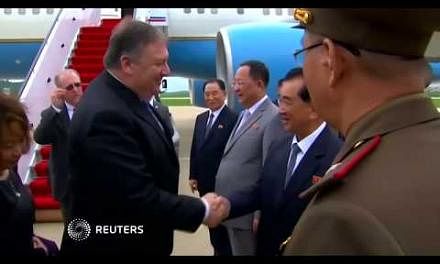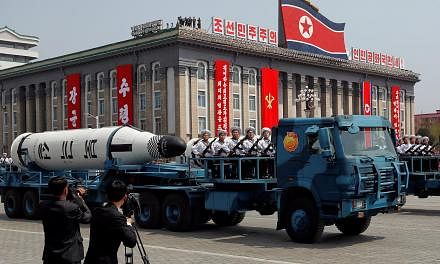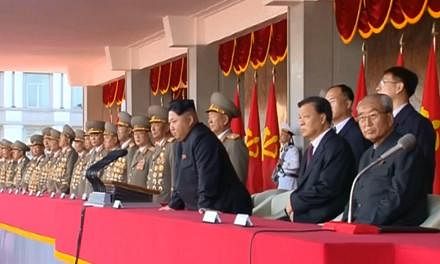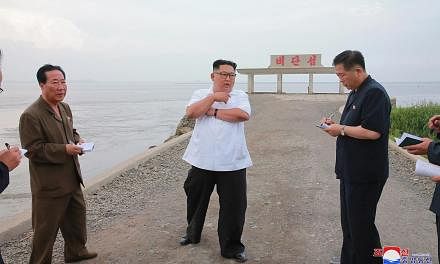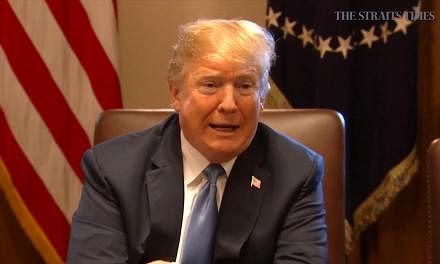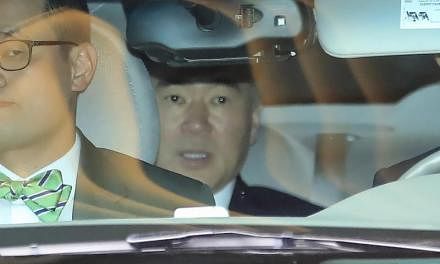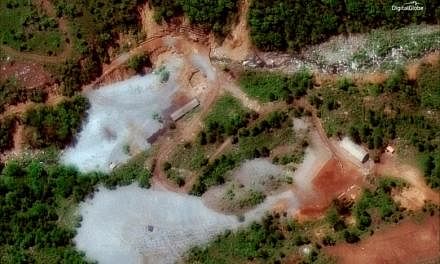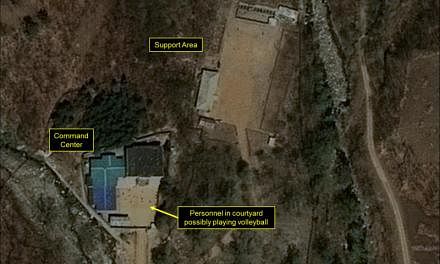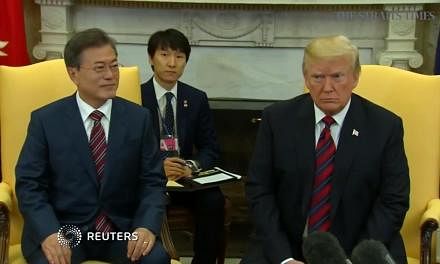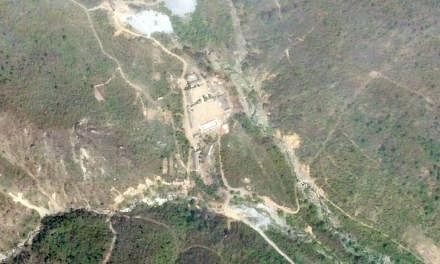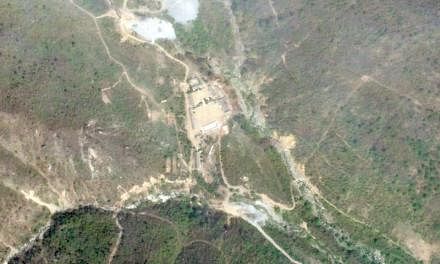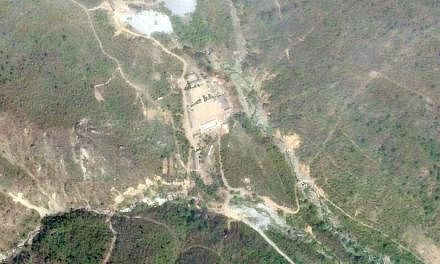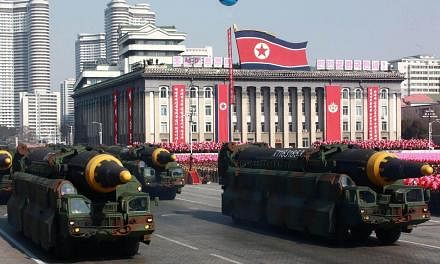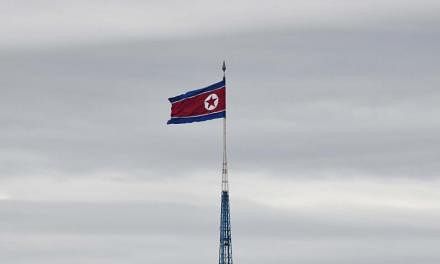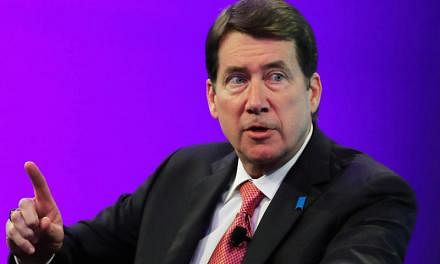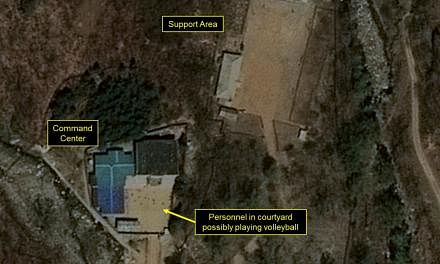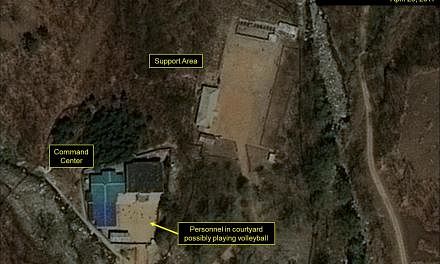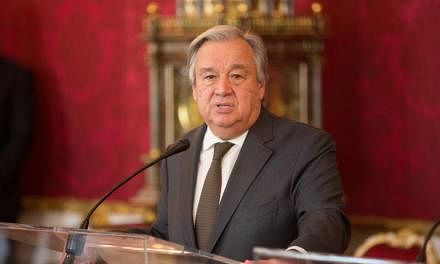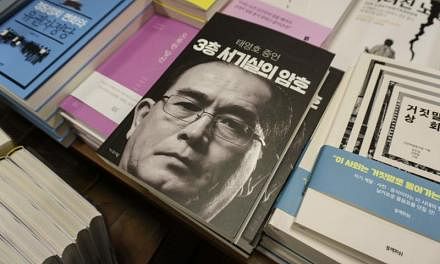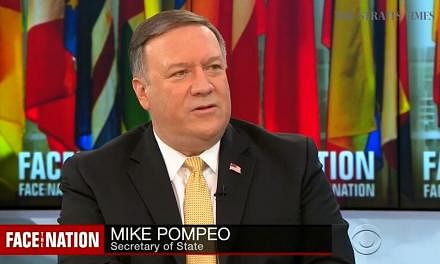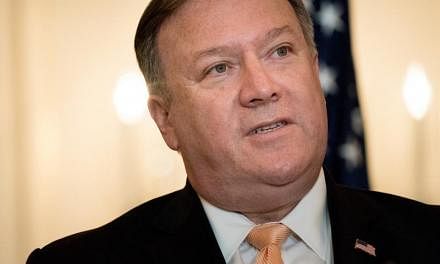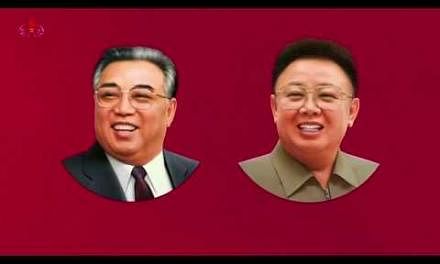WASHINGTON • Early in his administration, President Donald Trump signed a directive outlining a strategy of pressure against North Korea that involved actions across a broad spectrum of government agencies, and led to the use of military cyber capabilities, according to US officials.
As part of the campaign, the US Cyber Command targeted hackers in North Korea's military spy agency, the Reconnaissance General Bureau, by barraging their computer servers with traffic that choked off Internet access.
Mr Trump's directive, a senior administration official said, included instructions to diplomats and officials to bring up North Korea in nearly every conversation with foreign interlocutors and urge them to sever all ties with Pyongyang.
Those conversations have had significant success, particularly in recent weeks as North Korea has tested another nuclear weapon and ballistic missiles, officials said. So pervasive is the diplomatic campaign that some governments have found themselves scrambling to find any ties with North Korea.
When US Vice-President Mike Pence called on one country to break relations during a recent overseas visit, officials there reminded him that it never had relations with Pyongyang. Mr Pence then told them, to their own surprise, that their country had US$2 million (S$2.7 million) in trade with North Korea. Foreign officials, who asked that their country not be identified, described the exchange.
The directive also instructed the Treasury Department to outline an escalating set of sanctions against North Korean entities and individuals, and foreigners who dealt with them. Those instructions are reflected in a steady stream of US and global sanctions in recent months.
The directive was not made public at the time it was signed, following a policy review in March, because "we were providing every opportunity as a new administration to North Korea to sit down and talk, to take a different approach", said the official, who spoke on condition of anonymity.
"We made clear the door was open for talks before the President had even signed off on this strategy, but North Korea continued to launch missiles, continued to kidnap Americans to keep as hostages... all the things they did when we were early in the administration and sending signals that the door was open to talks."
That door remains open, Secretary of State Rex Tillerson said last Saturday in Beijing, though this was quickly downplayed by officials.
The US Cyber Command operation, which was due to end last Saturday, was part of the overall campaign set in motion many months ago. The effects were temporary and not destructive, officials said.
Nonetheless, some North Korean hackers griped that lack of access to the Internet was interfering with their work, according to another US official, who also spoke on condition of anonymity.
The Cyber Command and the White House had no comment. But the senior administration official said: "What I can tell you is that North Korea has itself been guilty of cyber attacks and we are going to take appropriate measures to defend our networks and systems."
Mr Eric Rosenbach, who led the Pentagon's cyber efforts as assistant secretary of defence in the Barack Obama administration, said the operation "could have the advantage of signalling to the North Koreans a more aggressive posture", adding, however, that "there is accompanying risk of an escalation and a North Korean cyber counter-attack".
Others said they would be cautious about using even minor cyber capabilities against North Korea and doing it openly because of the risk of retaliation. "I wonder what the disruptive payoff is that we are getting that's worth even a marginal extra chance of nuclear war?" said Mr Jason Healey, a former military cyber operator who is now a senior research scholar at Columbia University's School of International and Public Affairs.
WASHINGTON POST

